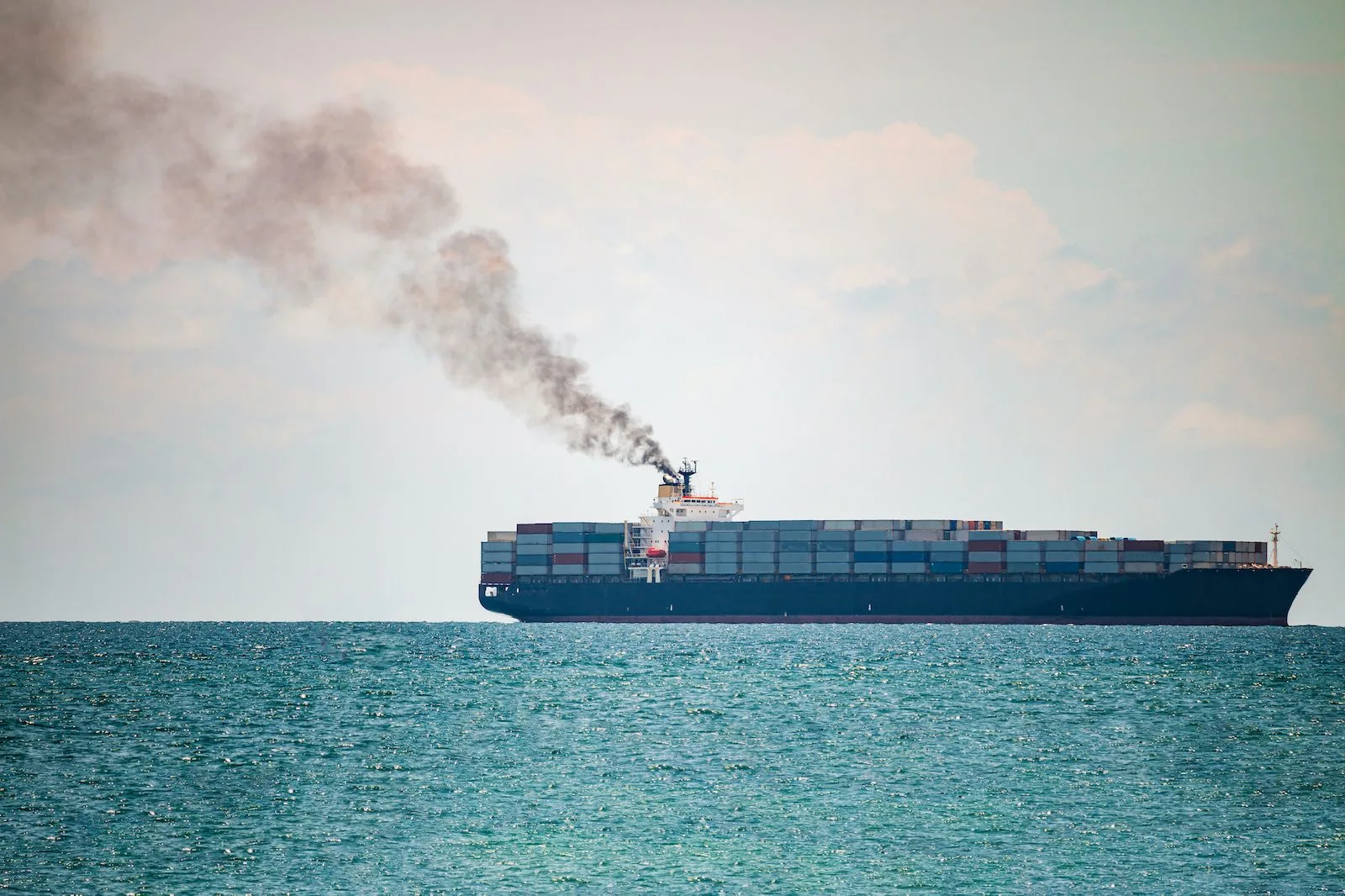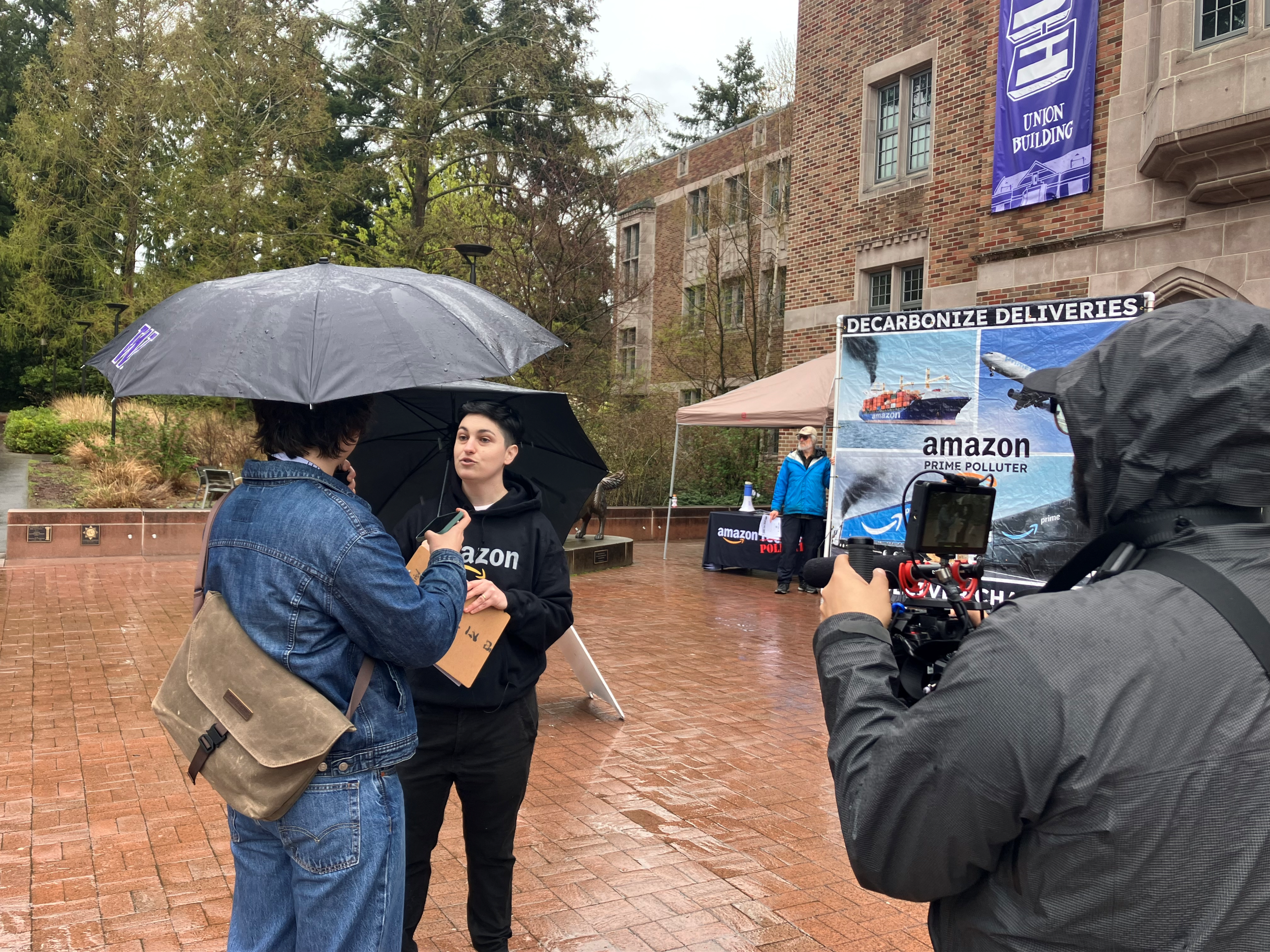


SINGAPORE — The Zero Emission Maritime Buyers Alliance (ZEMBA), an alliance of freight buyers that includes major retailers — like members Amazon, IKEA and Nike — announced that global container shipping company Hapag-Lloyd has won its first tender for ocean shipping. This tender will achieve at least a 90% reduction of greenhouse gases on a lifecycle basis relative to fossil-fuel powered service. Hapag-Lloyd will be using a waste-based biomethane shipping service.
Jonathan Butler (they/them), Ship It Zero campaign lead for Pacific Environment said, “We congratulate ZEMBA on completing its first tender process. This serves as a key example of going beyond theorizing about green shipping and taking tangible steps to achieve it. Furthermore, the announcement makes it clear that major retailers and shipping companies want to take action towards decarbonization and will invest in doing so. For this, we commend them — but we must keep the bar high. We know that biofuels are not a scalable or long-term solution to decarbonizing this sector. Cargo owners and carriers must continue to use their power to accelerate the adoption of e-fuels and, in the short-term, implement efficiency measures that can have an immediate impact on reducing emissions and port pollution. These corporate stakeholders must commit to Ship It Zero as the urgency of the climate crisis demands bold action. That means scaling up the supply of e-fuels to truly reach a sustainable zero-emission shipping future.”
In August 2023, the Ship It Zero Campaign released its inaugural report cards to hold retailers and ocean carriers accountable on their path to decarbonization. Today’s winner Hapag-Lloyd came in with a low score on progress towards zero-emission shipping, receiving an F grade overall. Ship It Zero Campaign Lead Jonathan Butler said, “The winning bid from Hapaq-Lloyd comes as a welcome surprise as they previously scored poorly on our 2023 Decarbonization score card. The win of the RFP, let alone their desire to take part in the process, is a key signal that carriers can make tangible steps toward change. We continue to call on Hapag-Lloyd and other global shipping leaders to step up to this challenge by immediately implementing efficiency measures and supporting the acceleration of e-fuels to move the industry to truly zero-emissions. We have no time to waste.”
The Zero Emission Maritime Buyers Alliance (ZEMBA), an initiative of Cargo Owners for Zero Emission Vessels (coZEV) is facilitated by the Aspen Institute, and has led the first major buyer alliance to speed up the transition to zero-emission shipping fuels.
Delivery of shipping services powered by new, cleaner fuels is anticipated in 2025. As part of the bidding process, ZEMBA requested vessel and fuel assurances from bidders and third-party verification of the emissions reduction its members can claim. Furthermore, Hapag-Lloyd has confirmed that their use of biomethane for this bid will not result in the further buildout of Liquified Natural Gas (LNG) infrastructure. Ship It Zero strongly opposes LNG, as LNG is a fossil fuel that is primarily methane, a potent greenhouse gas that is more than 80 times more potent than CO2 and 80% more potent on a 20-year timescale.
Furthermore, given the expected potential for first deployment of e-fuels on the water in 2027, ZEMBA adjusted this deal with Hapag-Lloyd from three years to two years — 2025-2026 — to allow members the opportunity through ZEMBA’s second tender to focus on supporting e-fuels. The second tender is anticipated to launch later in 2024.
SHIPPING INDUSTRY’S POLLUTION PROBLEM
The global shipping industry accounts for 3% of global climate emissions, more than global air travel. If shipping were a country, it would be the world’s sixth largest climate polluter. Globally, shipping emission contributes to 266,300 premature deaths and 6.4 million cases of childhood asthma.
Approximately 90% of the world trade is transported by sea, and current business-as-usual scenarios project emissions will grow up to 50% by 2050 over 2018 levels. While the International Maritime Organization noted increased ship size and operational improvements aimed at creating better fuel efficiency have resulted in a decrease in emissions intensity, annual absolute emissions are still increasing.
###
Ship It Zero is a climate and public health campaign to move the world’s largest companies to 100% zero-emissions ocean shipping. It urges companies such as Walmart, Home Depot, Amazon, Target and IKEA — to transition to 100% zero-emissions cargo shipping vessels by 2030. This goal will ensure the shipping industry does its fair share in helping to keep global warming under 1.5 degrees Celsius, the target scientists say is needed to avoid the worst consequences of the climate crisis.
Media Contact:
Gwen Dobbs, Campaign Communications Director, Pacific Environment, gdobbs@pacificenvironment.org

Recent Updates





